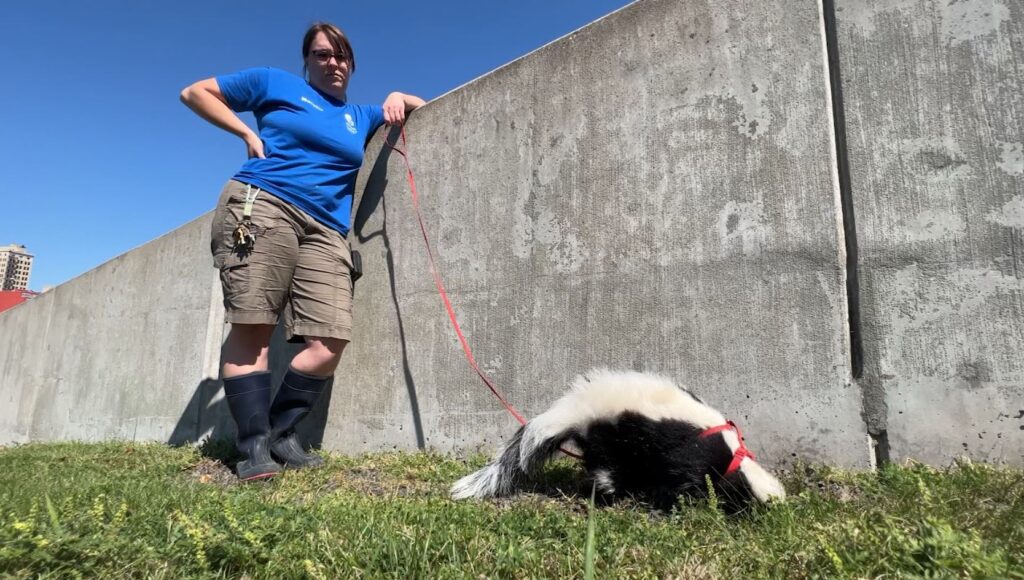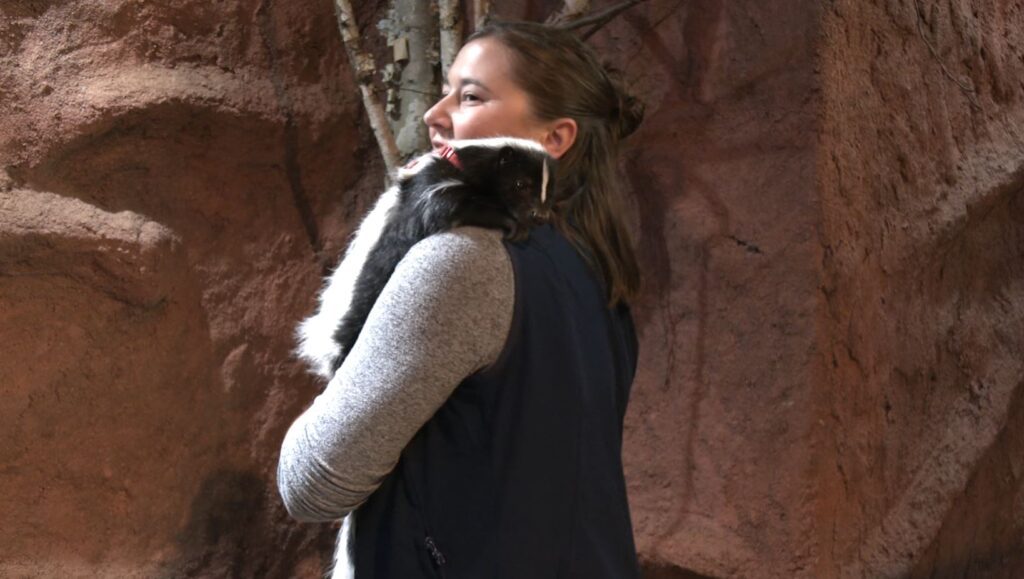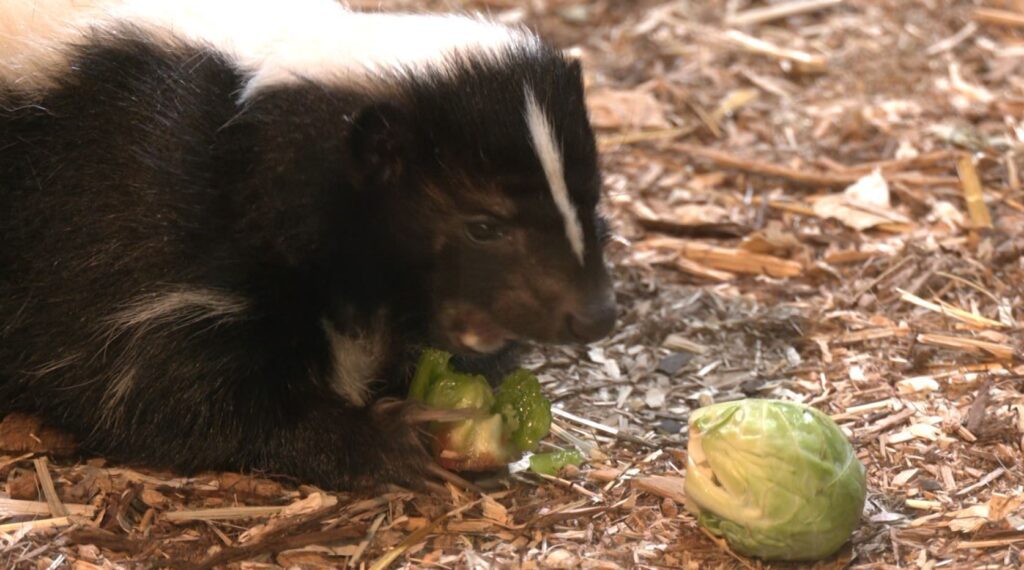In Otter News: Meet Snoops the Striped Skunk
In this week’s otter news, we go to the Great Lakes Aquarium to meet Snoops the striped skunk, one of the two kinds of skunks native to Minnesota. He was born in captivity in at a facility in Wisconsin in 2017, and during this time he had his scent gland removed. So when you see him out for his walk you don’t have to worry- he can’t spray you and probably wouldn’t anyway. Since Snoops has been in human care his whole life, he isn’t necessarily afraid of people.

The skunk walks are an important part of Snoop’s day. “It’s a great time for him just to be a skunk. So he get to go outside, dig around, follow his nose,” Danielle Tikalsky, the Volunteer and Engagement Manager at Great Lakes Aquarium, tell us.

And what they lack in vision, they make up for sense of smell. When they dig, they’re foraging for roots and dandelions and insects to eat. He gets about 30 minutes a day. If the weather isn’t great they’ll change the venue, taking Snoops through offices and event spaces.
While these creatures have a reputation for being a little stinky, they’re actually great neighbors. “They are excellent pest control. So one of their main pieces of their diet are insects. So ticks, spiders, grubs, things like that… So they’ll go through in an area they’ll eat all of that away. And that’s less of those insects that are coming into your home,” Danielle tells us. “They’re great at keeping predators away because other animals won’t come near.”

She also tells us that skunks aren’t necessarily smelly. It’s the sulfur. “It’s the chemical composition of the spray that tricks our mind into thinking it’s bad for us. Our noses are trained that if we smell anything that has to do with sulfur- you know the rotting egg smell- our brains know to avoid that.” That effect is the same across all other species of animals. Sulfur compounds are used in gases that we can’t smell. That way if there’s a leak in our home, we’ll be able to detect it.